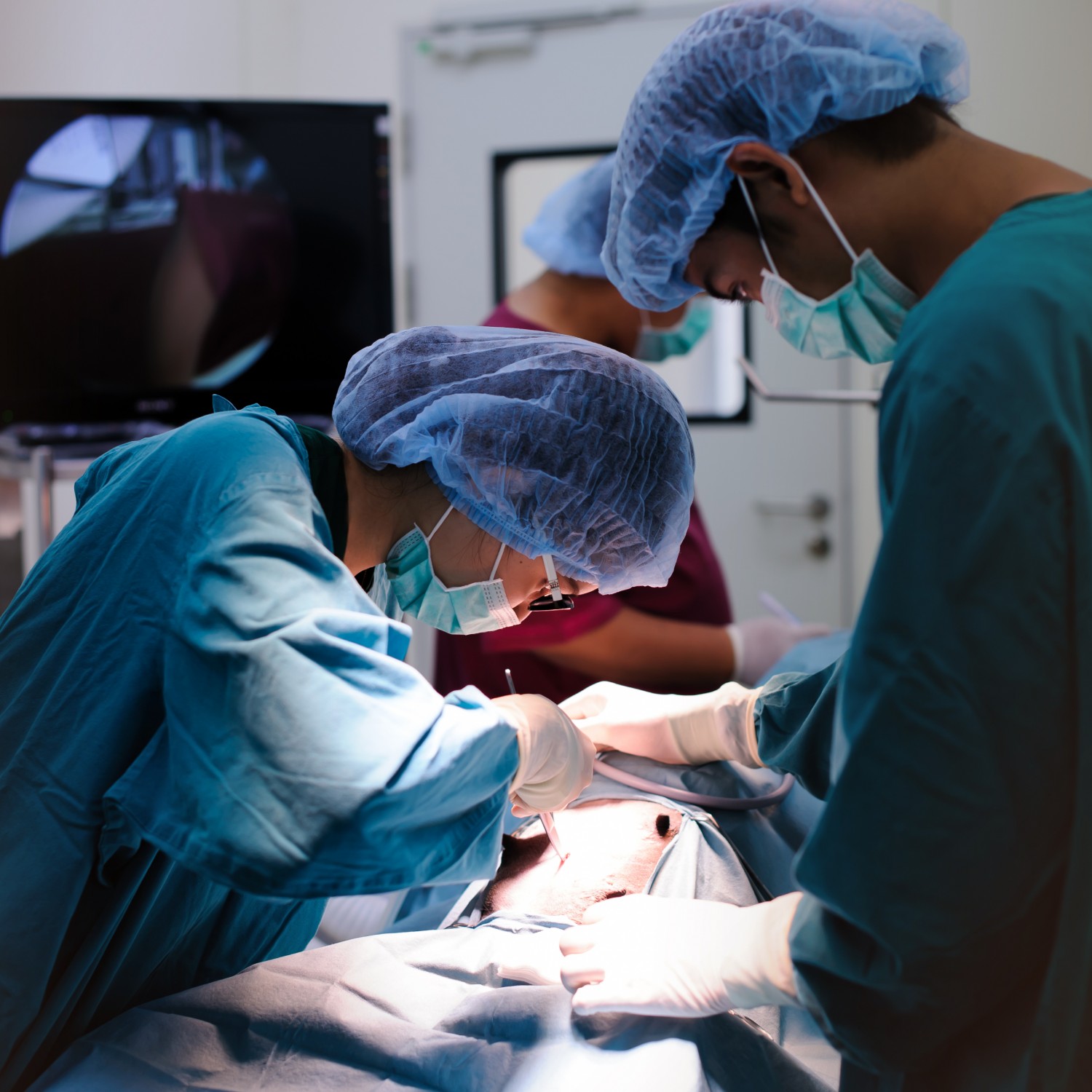202 Burnt Ridge Road, Red Deer, AB, T4S 0K6 | (403) 347-1711
|
Alberta Veterinary Center
(403)347-1711
albertavetcenter.ca
|
What You Need to Know Before Your Pet's Upcoming Surgery
Many people have questions about various aspects of their pet's surgery, and we hope this information will help. It also explains the decisions you will need to make before your pet's upcoming surgery.
Is the anesthetic safe?Today's modern anesthetic monitors have made surgery much safer than in the past. Here at Alberta Veterinary Center, we perform a thorough physical exam on your pet prior to administering sedation or anesthesia. Pre-anesthetic blood testing is important in reducing the risk of anesthesia. Every pet over the age of 7 years, is required to have blood testing before surgery to ensure that the liver and kidneys can handle the anesthetic. It is your decision if you would like to have your younger animal tested with pre-anesthetic blood work before their surgery. Even apparently healthy animals could have serious organ system problems that cannot be detected without blood testing. If there is a problem, it is much better to find it before it causes anesthetic or surgical complications. Animals that have minor dysfunctions will handle the anesthetic better if they receive IV fluids during surgery. If serious problems are detected, surgery can be postponed until the problem is corrected. For geriatric or ill pets, additional blood tests, electrocardiograms, or x-rays may be required before surgery as well. It is important that surgery be done on an empty stomach to reduce the risk of vomiting during and after anesthesia. You will need to withhold food for at least 8-12 hours before surgery. Water can be left for the pet until the morning of surgery.
Will my pet have stitches?
For many surgeries, our veterinarians place absorbable sutures underneath the skin. These will dissolve on their own and do not need to be removed. Some surgeries, especially tumor removals, do require skin stitches. With either type of suture, you will need to keep an eye on the incision for swelling or discharge. Most dogs and cats do not lick excessively or chew at the incision, but this is an occasional problem you will also need to watch for. If there are skin sutures, these will usually be removed 10 to 14 days after surgery, or as directed by your attending veterinarian. You will also need to limit your pet's activity level for a time and no baths or swimming are allowed for the first 10 days after surgery.
Will my pet be in pain?
Studies have shown that anything that causes pain in people can be expected to cause pain in animals. Pets may not show the same symptoms of pain as people do, they usually don't whine or cry, but you can be sure they feel it. Pain medications needed will depend on the surgery performed. Major procedures often require more pain relief than minor laceration repair. For dogs, we may recommend an oral non-steroidal anti-inflammatory drug the day after surgery and several days after to lessen the risk of discomfort and swelling. We use newer medications, which are less likely to cause stomach upset and can be given even the morning of surgery. The cost of the medication ranges from $10 to $15, depending on the size of your dog. Because cats do not tolerate standard pain medications such as aspirin, ibuprofen, or Tylenol, we are limited in what we can give them. Recent advances in pain medications have allowed for better pain control in cats than ever before. We administer a pain injection 10 minutes prior to surgery. After surgery, pain medication is given on a case by case basis.
What other decisions do I need to make?
While your pet is under general anesthesia, it is the ideal time to perform other minor procedures, such as ear cleaning, or implanting an identification microchip. If you would like an estimate for these extra services, please call ahead of time. This is especially important if the person dropping the pet off for surgery is not the primary decision maker for the pet's care. When you bring your pet in for surgery, we will need to 5 to 10 minutes of time to fill out paperwork and make decisions on the blood testing and other options available. When you pick up your pet after surgery you can also plan to spend about 10 minutes to go over your pet's home care needs. Please do not hesitate to call us with any questions about your pet's health or surgery.
|


